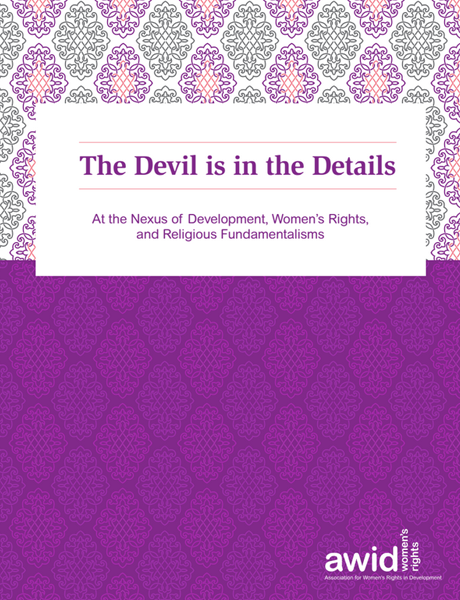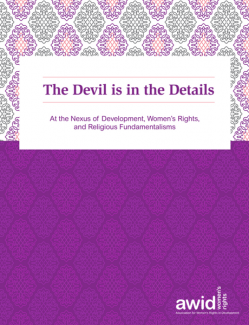
Our research paper examines the relationship between development initiatives, the growth of religious fundamentalisms, and the state of women’s rights.
"At the nexus of development, women’s rights, and religious fundamentalisms"
The paper addresses knowledge gaps around religious fundamentalisms within the development sector, and aims to improve understanding of how religious fundamentalisms constrain development and women’s rights in particular. It provides recommendations for ways development actors can avoid inadvertently strengthening and instead challenge fundamentalisms.
In a nutshell:
Read the key insights from the paper in our ‘7 Pointers for Development Actors’ brief
A worldwide problem for women’s rights
The paper presents a global picture of rising religious fundamentalisms. It details the grave human rights violations, and violations of women’s rights in particular, caused by state-sponsored fundamentalism, as well as by fundamentalist non-state actors such as militias, religious community organizations, and individuals.
The control of women’s bodily autonomy is a hallmark of fundamentalist ideology that crosses religious boundaries, and is central to the way that fundamentalist ideologues exercise power.
Religious fundamentalisms have particularly high costs for women and girls. Fundamentalist reinforcement of regressive, patriarchal social norms are leading to the rise of violence against women, girls, and women human rights defenders (WHRDs).
Key insights for addressing the problem
- Religious fundamentalisms are gaining ground within communities, political systems, international arenas with devastating effects for ordinary people, and for women in particular. There is an urgent need to act.
- Development actors are in a position to take a strong role in this. The collective capacity of development actors to recognize and collaboratively address religious fundamentalisms is vital for advancing social, economic, and gender justice and the human rights of all people in sustainable development
- Women’s bodies are the first sites of control of nascent fundamentalisms, so those in development must take cues from the analysis of women’s movements
- A sustainable, women’s-rights-focused response to religious fundamentalisms requires addressing the structural drivers of fundamentalisms—neoliberal economic policies, the arms trade, political marginalization, and shrinking democratic spaces
- It is vital to promote intersectional feminist understandings of power and privilege, and to apply these to questions of religion and culture. Development actors can promote positive inclusive identities to counteract the bounded, othering identities fostered by fundamentalists.
- By prioritising progressive partners for their activities, development actors can avoid giving resources or legitimacy to religious fundamentalists.
- Women’s organizations already have knowledge and strategies to counter fundamentalisms--development actors should build on this, and invest in cross-issue coalitions to help them reach new heights.
